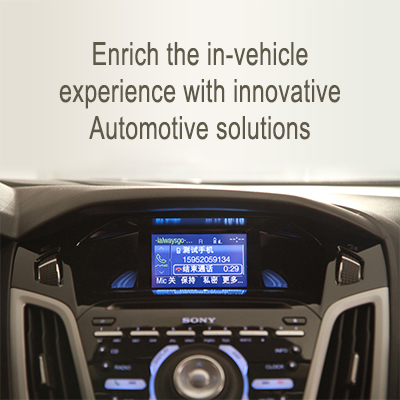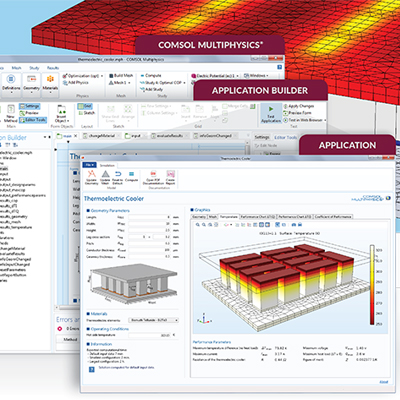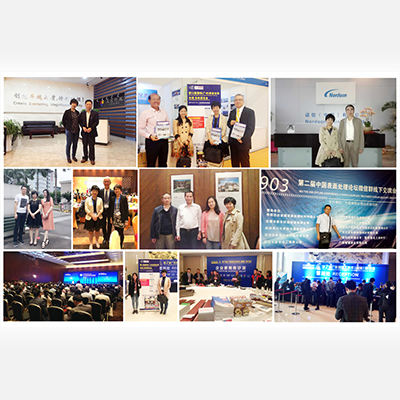Connected Car Technology: The Future of Automotive Connectivity
In a world where technology evolves at an unprecedented pace, our vehicles are no exception. The rise of connected car technology is transforming the way we drive, making our vehicles smarter, safer, and more convenient. In this article, we'll explore the exciting world of automotive connectivity, its current state, and what the future holds for connected cars.
A) What is Connected Car Technology?
Connected car technology, simply put, refers to the integration of the internet and wireless communication into our vehicles. It's like turning your car into a giant smartphone on wheels. This technology enables cars to share data, communicate with other vehicles, access the internet, and interact with various devices and services. Here's a breakdown of the key aspects of connected cars:
Internet Connectivity: Just like your smartphone or computer, connected cars can access the internet. This allows for real-time updates, information, and entertainment during your journey.
Data Sharing: Your vehicle can share data with manufacturers, service centers, and other cars on the road. This data can help improve safety, diagnose issues, and enhance your driving experience.
Advanced Navigation: Due to GPS and real-time traffic data, connected cars can offer intelligent navigation, suggesting the best routes to avoid traffic jams.
Safety Features: Connected car technology can help prevent accidents through features like lane departure warnings, collision detection, and automatic emergency braking.
Entertainment and Convenience: With internet access, you can stream music, and movies, and use your favorite apps right from your car. Voice commands make it even easier to control your car's functions.
B) The Current State of Connected Cars
Connected car technology is already part of our lives, and you might not even realize it. Many new cars come equipped with various connectivity features. Here are some examples of what's already available:
Infotainment Systems: Most modern cars have infotainment systems with touchscreen displays, allowing you to control music, navigation, and other functions.
Remote Start and Lock: Remote start and lock capabilities allow certain vehicles to remotely initiate engine start or lock/unlock the vehicle using a smartphone app, even when you're not physically near the car.
Telematics and Diagnostics: Many cars offer remote diagnostics, allowing manufacturers to track your vehicle's health and provide timely maintenance alerts.
Emergency Assistance: Some vehicles automatically call for help in the event of a crash or breakdown.
Connectivity Services: Subscription services like OnStar and BMW ConnectedDrive provide a range of connected features, from concierge services to vehicle tracking.
C) The Future of Automotive Connectivity
As technology continues to advance, the future of connected car technology promises even more exciting developments. Here's a glimpse into what we can expect:
Autonomous Driving: Connected cars will play a significant role in the development of self-driving vehicles. They'll communicate with each other and with traffic infrastructure to ensure safer and more efficient transportation.
5G Connectivity: The introduction of 5G networks is set to deliver swifter and more dependable internet to automobiles, facilitating uninterrupted streaming, instantaneous updates, and improved communication among vehicles.
Smart Cities: Connected cars will be integrated into smart city initiatives, helping to reduce congestion, improve traffic flow, and enhance urban planning.
Predictive Maintenance: Vehicles will become even smarter at diagnosing and predicting issues, helping you schedule maintenance before a breakdown occurs.
Enhanced Infotainment: Future infotainment systems will offer augmented reality displays, immersive entertainment, and even more intuitive voice control.
Environmental Benefits: Connected cars will contribute to reduced emissions through more efficient route planning and the promotion of eco-friendly driving habits.
Security: As cars become more connected, cybersecurity will be a paramount concern. Manufacturers will invest heavily in securing vehicle networks from hacking and unauthorized access.
Personalized Experiences: Your connected car will know your preferences, from your favorite temperature settings to your preferred routes, making your driving experience more enjoyable and convenient.
D) Challenges and Concerns
While the future of connected cars is bright, it's not without its challenges and concerns. Privacy is a major issue, as the more our vehicles know about us, the more personal data they collect. This information can be vulnerable to hacking or misuse. Additionally, there are concerns about the impact of connected cars on job security, particularly in industries like trucking where autonomous vehicles may replace human drivers.
E) The Road Ahead: An Evolving Landscape
The future of connected car technology is indeed filled with promise, marked by its swift evolution. Automakers and technology companies are making substantial investments in research and development, ensuring that automotive connectivity will keep reshaping our driving experiences. Here are some more anticipated advancements on the horizon:
Electric Vehicle Integration: As electric vehicles (EVs) become more prevalent, connected car technology will play a crucial role in optimizing charging and range management. Expect to see improved EV infrastructure integration and apps that guide you to the nearest charging station.
Smart Interactions: The future will bring even smarter and more intuitive interactions with your vehicle. Imagine a car that recognizes your emotional state and adjusts the cabin environment to alleviate stress, or one that can have a natural conversation with you, providing answers and assistance.
Environmental Responsibility: With the escalating worries about climate change, connected cars are poised to contribute to the reduction of the transportation industry's carbon footprint. Advanced data analytics and predictive maintenance will enhance the efficiency of vehicles, ultimately leading to reduced emissions.
Advanced Vehicle-to-Everything (V2X) Communication: V2X communication will allow cars to communicate not only with each other but also with traffic signals, pedestrian crossings, and infrastructure. This will improve traffic flow, reduce accidents, and make urban transportation more efficient.
Economic Impacts: Connected cars will affect various industries. For instance, car insurance may evolve towards pay-as-you-go models based on real-time driving data. On-demand car services could transform the way we think about car ownership.
Beyond the Car: Connected car technology is not limited to the vehicle itself. It extends to the entire ecosystem of mobility, including ride-sharing, car-sharing, and public transportation. Integration of these services can create a seamless, interconnected transportation network.
The Human Element: While technology continues to advance, the human element remains critical. Drivers must adapt to new features and capabilities, understand the importance of cybersecurity, and be mindful of distractions in an increasingly connected vehicle environment.
Conclusion
Connected car technology is revolutionizing the automotive industry. As we move forward, we can expect safer, more convenient, and environmentally friendly driving experiences. However, it's essential to navigate these changes with a critical eye on privacy and security. The future of automotive connectivity is undoubtedly exciting, and it's up to us to ensure it benefits us all, both as drivers and as a society.



